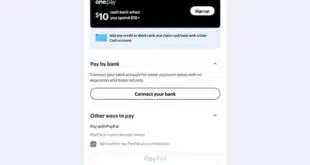Evidence is starting to emerge that electronic bill presentment, like payment, is poised to explode. Statistics from Atlanta-based processor CheckFree Corp. show it was averaging a delivery rate of slightly more than 1 million bills a month during the third quarter of 2002. By the fourth quarter of 2003, it was delivering 4 million bills and it is currently averaging 8 million bills per month. “It took us five years before we could report that we were presenting 1 million bills a month for banks, but then last year we grew from 1 million bills a month to 4 million bills a month,” says Mark Moore says, head of the strategic team for electronic commerce at CheckFree. Now the growth rate is skyrocketing. Meanwhile, at Atlanta-based online bank NetBank Inc, about half of the bank's 117,000 customers pay their bills online, but already 10% of them are receiving e-bills and the amount is growing, a bank spokesperson explains. Others are also seeing a rapid growth in users in the last year. Many believe getting to electronic bills is a matter of following an evolutionary path where consumers first go online, then bank online, later pay bills and shop online, and finally get bills online. Others, however, blame billers for making it difficult for consumers to get their bills at bank and other sites that consolidate bills and payments for multiple billers. In some cases, consumers can only see a limited version of their bill?often just the balance and due date?with detailed information available only by linking to the biller's site. And sometimes that requires the use of multiple passwords, which can be cumbersome to consumers. Despite growth like that reported by CheckFree, many consumers still cannot receive any bills at their banks' sites. A study of major banks by Celent found that only 29% of the banks surveyed even offer bill presentment while 47% had plans to offer the service in the next two years. The numbers are expected to be even smaller with community banks, which often lag the bigger financial-service companies. But CheckFree's Moore argues that banks that don't push bill presentment are missing out on a great opportunity. That's because consumers who receive their bills electronically are even more likely than those who pay their bills online to stick with their banks. CheckFree's studies show consumers who receive their bills at a bank site are 1.5 times less likely to quit the bill payment service than customers who only pay their bills. And bill-presentment customers are twice as active in making payments as consumers who only pay bills online. Furthermore, CheckFree found 62% of consumers who receive their bills at a bank site report a satisfaction level of 9 or 10 (on a scale of one to 10) with their bank while only 55% of those who pay bills online report levels that high. Only 41% of those who actively bank online but do not pay bills online report high satisfaction levels. CheckFree also found that customers who use bill presentment services are less likely to leave the bank than customers who only pay their bills or bank online. And customers with electronic bill presentment are less likely to call the bank's customer service centers with questions about payments of specific bills. That's because these customers can obtain much of the information themselves. CheckFree found customers with e-bills make 43% fewer calls to the bank with bill-pay questions than customers without them. While banks have been somewhat slow to present bills on their Web sites, the situation is a little better on the biller side. TowerGroup, a Needham, Mass.-based consultancy, expects that about 47% of top U.S. billers will offer a means to electronically invoice their customers by the end of this year?either through their own sites or at a consolidator site, such as a bank–while another 33% plan to offer it within the next two years.
Check Also
Branded Checkout Helps Buoy PayPal As It Eyes Crypto And BNPL
PayPal Holdings Inc. recorded a tepid 1% growth rate in revenue in the first quarter, …





